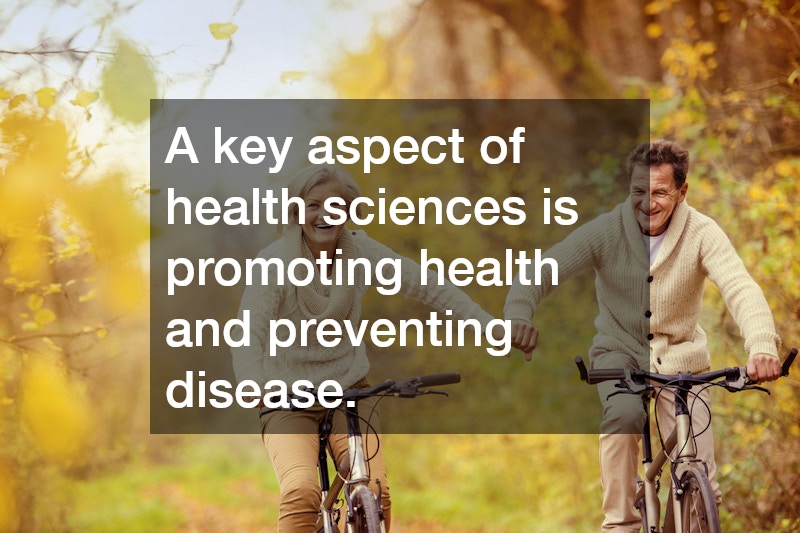
Pursuing a degree in health sciences is an exciting and fulfilling path for students who want to make a difference in healthcare. Health sciences degrees prepare individuals for various careers in the healthcare industry, including roles in clinical practice, healthcare administration, public health, and research. The comprehensive curriculum and hands-on learning opportunities offered in health sciences programs provide students with the knowledge and skills needed to succeed in a fast-paced and ever-evolving field.
If you’re considering a health sciences degree at Barton College, you may wonder what to expect throughout your academic journey. This blog will guide you through the typical coursework, hands-on learning experiences, and career opportunities associated with this degree, offering insight into how Barton College prepares students for successful careers in healthcare.
What is a Health Sciences Degree?
A health sciences degree is a multidisciplinary program that covers various aspects of healthcare, from clinical practices to healthcare management and research. Students enrolled in a health sciences program study the scientific foundations of health and wellness, along with the social, ethical, and legal issues surrounding healthcare. This degree is highly versatile and can lead to many different career paths within the healthcare industry.
At Barton College, the health sciences program is designed to provide students with a strong foundation in health-related subjects, including anatomy, physiology, nutrition, healthcare ethics, and more. The health sciences degree at Barton College emphasizes both academic rigor and practical experience, ensuring that students graduate well-prepared for a wide range of healthcare careers or further studies in medical, dental, or other professional health programs.
What Will You Study?
Students pursuing a health sciences degree at Barton College will be exposed to a comprehensive curriculum that includes both core courses and electives tailored to specific interests. Below are some of the key areas of study you can expect:
1. Anatomy and Physiology
Understanding the structure and function of the human body is fundamental for any healthcare career. Courses in anatomy and physiology provide students with detailed knowledge of how the body’s systems work and how they interact to maintain health and wellness.
2. Health Promotion and Disease Prevention
A key aspect of health sciences is promoting health and preventing disease. Students will learn strategies for educating individuals and communities on maintaining a healthy lifestyle, as well as the importance of early detection and intervention in managing chronic diseases.
3. Healthcare Ethics and Law
Healthcare professionals must navigate complex ethical and legal situations. Courses in healthcare ethics and law will introduce students to the principles guiding patient care, confidentiality, informed consent, and medical decision-making. Understanding these issues is critical for ensuring ethical and legal compliance in healthcare settings.
4. Research Methods in Health Sciences
Research plays a vital role in advancing healthcare practices. Health sciences students will gain exposure to research methods, including how to design studies, collect data, and analyze findings. This knowledge will prepare students for potential careers in healthcare research or for advancing to graduate programs.
5. Public Health
Public health courses focus on the broader healthcare needs of populations, including issues related to health disparities, healthcare access, and community health programs. These courses emphasize the importance of healthcare professionals working together to improve the well-being of communities.
Hands-On Learning Opportunities
In addition to academic coursework, students enrolled in the health sciences degree at Barton College can expect hands-on learning opportunities that allow them to apply their knowledge in real-world settings. Barton College offers various experiential learning experiences, including internships, clinical placements, and community service projects, all of which are crucial for developing practical skills.
1. Internships and Clinical Experience
Internships provide students with exposure to professional healthcare settings where they can work alongside healthcare providers, administrators, and researchers. These experiences not only help students build valuable skills but also allow them to explore different career paths within healthcare.
2. Service Learning and Community Engagement
Many health sciences programs, including Barton College’s, encourage students to participate in service learning projects and community outreach initiatives. These experiences help students understand the real-world challenges faced by underserved populations while fostering a sense of civic responsibility.
Career Opportunities After Graduation
Graduates with a health sciences degree at Barton College are well-prepared for a variety of careers in the healthcare field. The versatility of the degree opens doors to many different opportunities, including:
1. Clinical Roles
Students may pursue careers in direct patient care, such as becoming a medical assistant, physical therapist, occupational therapist, or healthcare technician. With additional certifications or advanced degrees, graduates may also go on to become nurses, physician assistants, or other specialized healthcare professionals.
2. Healthcare Administration
Health sciences graduates may also find careers in healthcare management and administration, where they can work in hospitals, clinics, or public health organizations. These roles involve managing healthcare operations, ensuring regulatory compliance, and improving patient care delivery.
3. Public Health and Community Health Education
For students interested in public health, career paths include becoming public health educators, health promotion specialists, or working in policy development. These professionals focus on improving health outcomes for communities and addressing health disparities.
.


